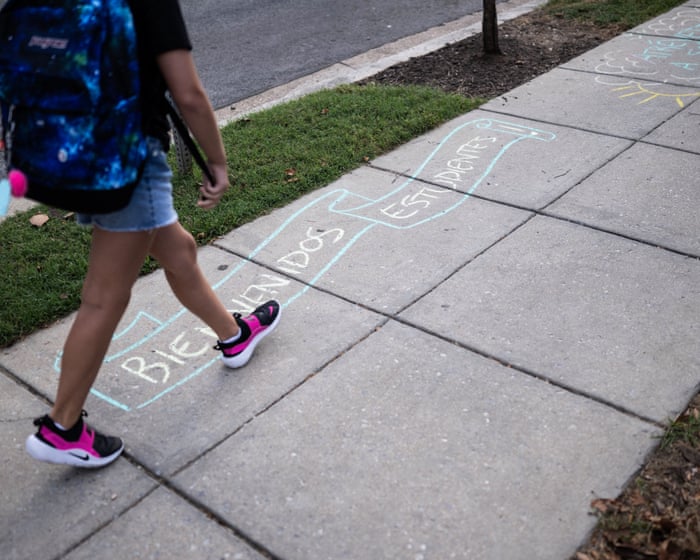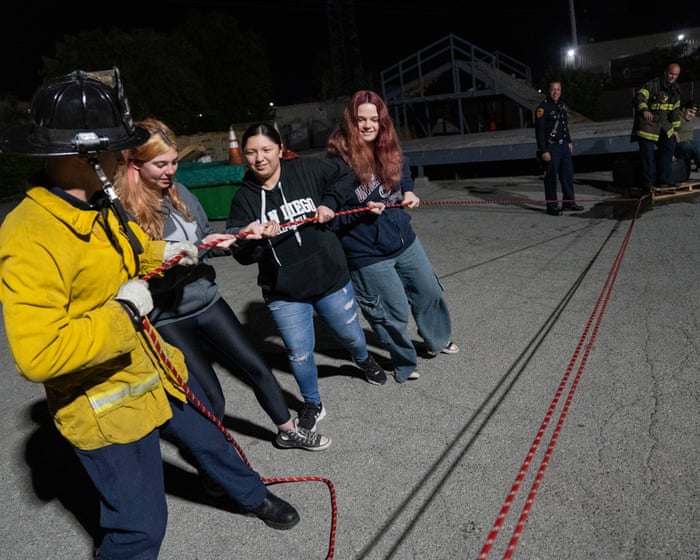Venezuelan opposition leader María Corina Machado has been awarded the Nobel Peace Prize for her persistent efforts to free the South American nation from what she calls a “brutal, authoritarian state.”
Machado, a 58-year-old conservative often referred to as Venezuela’s Iron Lady, has been in hiding for the past year. This followed widespread belief that her political movement defeated President Nicolás Maduro in the July 2024 presidential election. Maduro rejected the outcome, which showed he had lost to Machado’s ally, former diplomat Edmundo González, and launched a severe crackdown. This forced González into exile and drove Machado underground.
In one of her final public appearances in Caracas, Machado expressed confidence that Maduro’s time in power was limited after his apparent defeat. “I would say his departure is irreversible,” she told the Guardian.
Yet, over a year later, Maduro remains in control, with the crucial backing of Venezuela’s military and key international allies like China and Russia. Recently, Donald Trump has ordered a significant naval buildup off Venezuela’s Caribbean coast, leading to speculation about a potential regime change operation.
Machado responded to the Nobel Prize news in a video shared by González on social media, where they celebrated together. “I can’t believe it! My God!” an astonished Machado exclaimed to her ally. “It’s fucking incredible!” González replied.
The Norwegian Nobel Institute released footage of its director, Kristian Berg Harpviken, waking Machado with the announcement. “Oh my God!” she said. “I have no words… But I hope you understand that… I am just one person; I certainly don’t deserve this.”
Pedro Mario Burelli, an opposition politician and friend of over forty years, noted that the news took her completely by surprise. “She’s very moved. She’s very concerned about what impact this has on the last phase of the struggle. She’s tearful,” he added after speaking with her on Friday morning.
On social media platform X, Machado wrote that the prize serves as “an impetus to conclude our task: to conquer freedom.” She stated, “We are on the threshold of victory and today more than ever we count on President Trump, the people of the United States, the peoples of Latin America, and the democratic nations of the world as our main allies to achieve freedom and democracy.”
The Nobel committee praised Machado’s long-standing fight for democracy in a statement, calling her “one of the most extraordinary examples of civilian courage in Latin America in recent times.” It also commended the Venezuelan opposition’s “innovative and brave, peaceful and democratic” push for change during last year’s election, when hundreds of thousands of volunteers mobilized to monitor the vote and gather evidence showing González had won.
“But the regime refused to accept the election result and clung to power,” the committee stated, describing Venezuela’s decline into dictatorship since Maduro was democratically elected in 2013 after the death of his mentor, Hugo Chávez.
“Venezuela has evolved from a relatively democratic and prosperous country to a brutal, authoritarian state that is now suffering a humanitarian and economic crisis,” the committee said. “Most Venezuelans live in deep poverty, while a few at the top enrich themselves. The state’s violent machinery is turned against its own citizens. Nearly 8 million people have fled the country. The opposition has been systematically suppressed through election rigging, legal prosecution, and imprisonment.”Machado, known to many Venezuelans as MCM or María Corina, has been active in politics for over twenty years and served in Venezuela’s national assembly from 2011 to 2014. She famously clashed with Chávez in 2012 over the country’s economic struggles, prompting his retort: “Eagles don’t hunt flies.”
But it was during her travels across the economically devastated nation by car and motorcycle ahead of the 2024 election that she solidified her status as the most effective and influential opponent of Chavismo.
Her rallies attracted massive, enthusiastic crowds, with many supporters expressing almost religious devotion to the charismatic Catholic politician. She promised to reunite millions of Venezuelan families separated by the mass migration caused by the country’s economic collapse under Maduro.
“She connected with people on the one issue that matters most—family,” said Burelli, pointing out that Machado’s own relatives had also been forced to flee abroad. “Everybody understands that she is in the same boat.”
Machado had initially aimed to run for president, but Venezuela’s pro-regime supreme court barred her from doing so, leaving the little-known former ambassador, González, to take her place.
“She will go down in history as the great opposition leader of our times… whether she becomes president or not,” said Carlos Lizarralde, author of Venezuela’s Collapse: The Long Story of How Things Fell Apart.
The Nobel committee praised Machado as a “brave and committed champion of peace” who kept “the flame of democracy burning during a growing darkness.” It also recognized her as “a key, unifying figure in a once deeply divided political opposition.”
Despite her widespread support, Machado is not universally admired. Some Venezuelans distrust her due to her past thinly veiled calls for foreign military intervention to remove Maduro. In 2019, she argued that only a “real, credible, severe, and imminent threat” of international force would convince Maduro to step down.
David Smilde, a Venezuela expert at Tulane University, noted, “María Corina Machado has shown incredible courage in fighting for democracy. In 2023–24, she heroically mobilized the Venezuelan population for presidential elections. However, much of her struggle before and since has involved non-democratic means, seeking to provoke international military intervention.”
Others are wary of her connections to radical right-wing politicians like Trump and Brazil’s former president Jair Bolsonaro.
Maduro and his allies mockingly call Machado “La Sayona”—the name of a terrifying female ghost from Venezuelan folklore who wanders the country seeking violent revenge on unfaithful husbands.
Christopher Sabatini, a senior research fellow on Latin America at Chatham House, said Maduro would be furious about the Nobel committee’s decision. “The question is, what now? Will it spark public demonstrations in support of María Corina Machado that put pressure on the government? Perhaps,” he said. “I think they would find it difficult to crack down with the international community watching, but they did so in July 2024.”
Burelli believes the award will protect his friend from possible arrest or persecution as she continues her fight for change. “This truly protects her now,” he said, arguing that targeting her would come at an “unbearable” cost for Maduro’s regime. “Now, I think she is bulletproof.”
Frequently Asked Questions
Of course Here is a list of FAQs about María Corina Machado winning the Nobel Peace Prize written in a natural conversational tone with direct answers
General BeginnerLevel Questions
1 Who is María Corina Machado
María Corina Machado is a prominent Venezuelan opposition politician and former legislator known for her strong criticism of the governments of Hugo Chávez and Nicolás Maduro
2 Is it true she won the Nobel Peace Prize
No this is not true As of the latest information María Corina Machado has not been awarded the Nobel Peace Prize
3 Why do people sometimes think she won a Nobel Prize
This confusion often arises from misinformation on social media or from supporters drawing parallels between her prodemocracy activism and the work of other Nobel laureates Its important to check official sources for confirmation
4 What is she most known for
She is best known for her leadership in the opposition movement her advocacy for free and fair elections in Venezuela and her work in exposing human rights abuses
5 Has any Venezuelan ever won the Nobel Peace Prize
Yes The Venezuelan physician and politician Rómulo Betancourt was nominated in 1960 but no Venezuelan has ever been awarded the Nobel Peace Prize
Advanced Detailed Questions
6 What would a Nobel Peace Prize mean for the Venezuelan opposition
If it were to happen it would be seen as a major symbolic victory providing significant international legitimacy a global platform for their cause and increased pressure on the Maduro government
7 What are the main challenges she faces as an opposition leader
She and the opposition face immense challenges including political persecution being banned from holding public office government crackdowns on protests and a state apparatus that controls most major institutions
8 How does the international community view her
Many Western governments and human rights organizations view her as a leading figure for democracy and a key representative of the Venezuelan opposition However governments allied with Maduro like Russia and China do not share this view
9 What is an example of her prodemocracy work
A key example is her founding of the citizen watchdog organization Súmate which focused on electoral transparency and voter education and her ongoing efforts to unite a fragmented opposition



